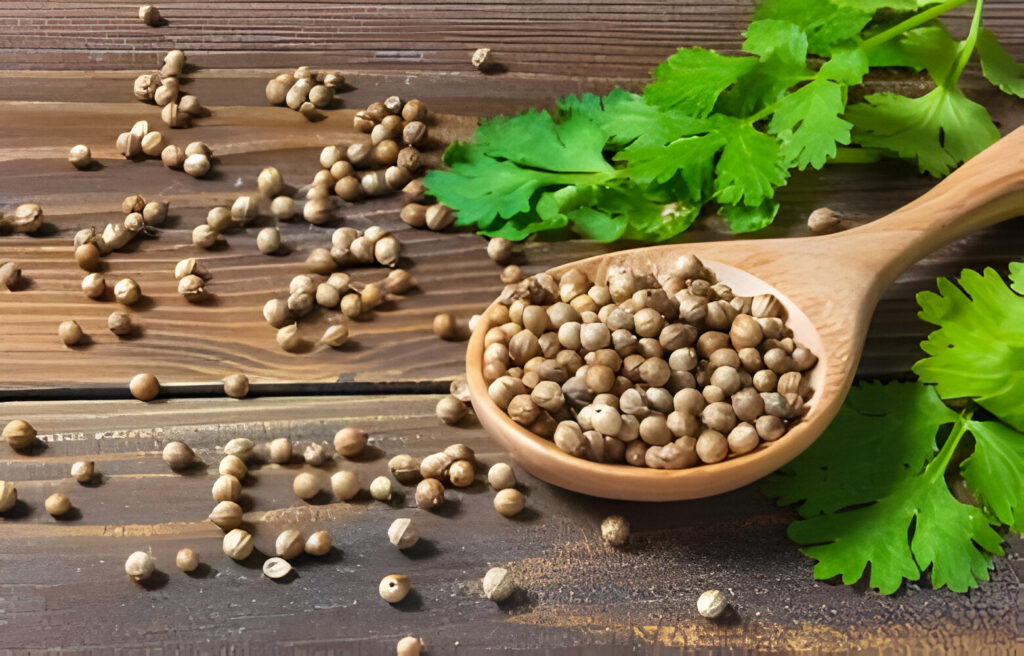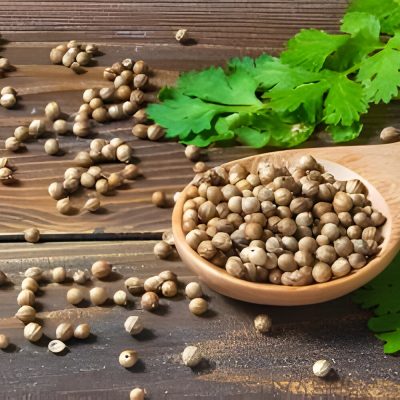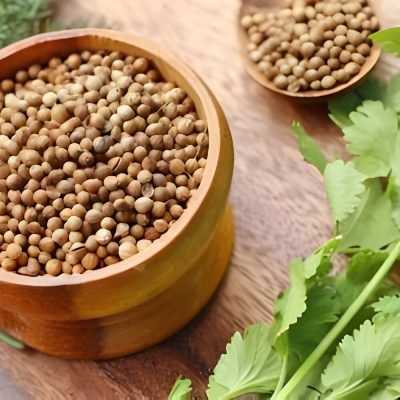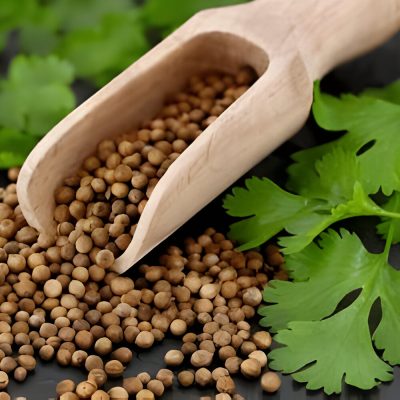Our Exclusive Items
Coriander




Coriander seeds are the dried fruit of the Coriandrum sativum plant, which is a member of the parsley family. These seeds are used as both an herb and a spice. They are known for their strong, sweet, citrus-like flavor and are used in a variety of dishes, especially in Mexican and Asian cuisine. Coriander seeds are also known for their health benefits, as they are rich in antioxidants, have anti-inflammatory properties, and can aid in digestion.
Patel Trading Co LLC is a prestigious trading company specializing in the business of coriander seeds. Since our establishment in 2011, we have been committed to providing our customers with top-quality coriander seeds. Our coriander seeds are sourced from some of the world’s leading coriander seed-producing countries, including India.
Our dedication to quality and customer satisfaction has positioned us as a trusted partner for businesses in need of coriander seeds. Our deep understanding of the coriander seed market allows us to offer competitive prices and ensure a consistent supply of this essential spice.
At Patel Trading Co LLC, we believe in fostering long-term relationships with our suppliers and customers, built on mutual trust and respect. We are proud of our track record in the coriander seed trading industry and look forward to continuing to serve our customers with the same dedication and integrity.
Coriander, also known as cilantro in its fresh leaf form and coriander seeds in its dried form, is a versatile herb/spice widely used in various cuisines around the world. Here’s a breakdown of its potential health benefits and culinary uses:
Health Benefits:
Digestive Health: Coriander contains compounds that may aid digestion and alleviate gastrointestinal discomfort. It can help reduce bloating, gas, and indigestion by promoting the production of digestive enzymes and bile.
Antioxidant Properties: Coriander is rich in antioxidants, including flavonoids, phenolic compounds, and vitamin C. These antioxidants help neutralize harmful free radicals, reducing oxidative stress and lowering the risk of chronic diseases.
Anti-inflammatory Effects: Some studies suggest that coriander may have anti-inflammatory properties, which could help reduce inflammation in the body. Chronic inflammation is linked to various health conditions, including arthritis, heart disease, and certain cancers.
Blood Sugar Regulation: Coriander may help regulate blood sugar levels and improve insulin sensitivity, making it beneficial for individuals with diabetes or those at risk of developing the condition. It may help lower fasting blood sugar levels and reduce insulin resistance.
Cholesterol Reduction: Animal studies have shown that coriander may help lower cholesterol levels by increasing the excretion of cholesterol in the feces. This may contribute to improved heart health and reduced risk of cardiovascular disease.
Antimicrobial Activity: Coriander exhibits antimicrobial properties against certain bacteria and fungi. It may help inhibit the growth of foodborne pathogens and spoilage organisms, reducing the risk of foodborne illnesses.
Weight Management: Coriander may support weight loss and metabolic health by increasing metabolism and reducing appetite. Its high fiber content helps promote satiety and regulate hunger hormones.
Skin Health: Coriander contains compounds that may benefit skin health, such as vitamin C and antioxidants. It may help protect the skin from oxidative damage, reduce inflammation, and promote a clear complexion.
Culinary Uses:
Fresh Herb: Cilantro, the fresh leaves of the coriander plant, is widely used as a garnish and flavoring agent in salads, salsas, dips, soups, and curries. It adds a bright, citrusy flavor and aroma to dishes.
Dried Seeds: Coriander seeds are commonly used as a spice in cooking and baking. They have a warm, citrusy flavor with earthy undertones. Ground coriander is used in spice blends, marinades, rubs, and curries.
Pickling: Coriander seeds are often used to flavor pickles, chutneys, and pickled vegetables. They add a distinct tangy and aromatic flavor to preserved foods.
Curries and Stews: Ground coriander is a key ingredient in many curry powders and spice blends. It adds depth of flavor and enhances the aroma of curries, stews, and sauces.
Baking: Coriander seeds can be used in baking bread, pastries, and cakes. They add a subtle, warm flavor to baked goods and can be ground or used whole.
Infusions: Coriander seeds can be infused into hot water to make a soothing herbal tea. The tea may have digestive benefits and a mild, refreshing flavor.
Marinades and Rubs: Ground coriander is often used in marinades and dry rubs for meats, poultry, and fish. It adds flavor and helps tenderize meats before cooking.
Product List
Cloves
This is a short description elaborating the service you have mentioned above.




Kitchen
This is a short description elaborating the service you have mentioned above.




Office Space
This is a short description elaborating the service you have mentioned above.





Bedroom
This is a short description elaborating the service you have mentioned above.





Living Room
This is a short description elaborating the service you have mentioned above.





Kitchen
This is a short description elaborating the service you have mentioned above.





Office Space
This is a short description elaborating the service you have mentioned above.





Bedroom
This is a short description elaborating the service you have mentioned above.




